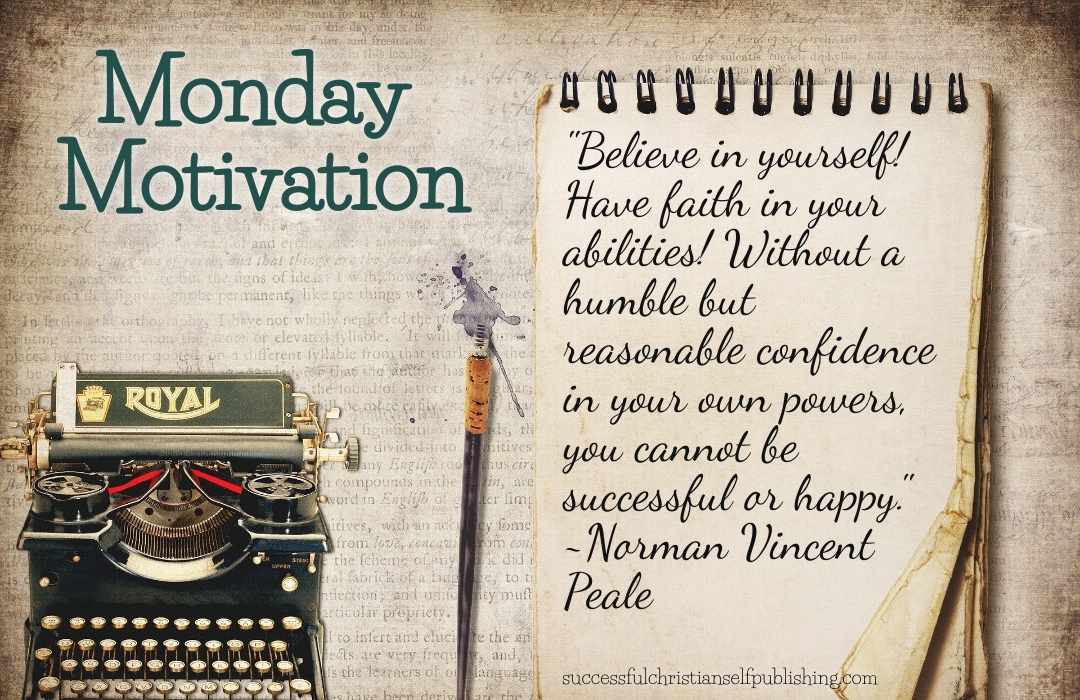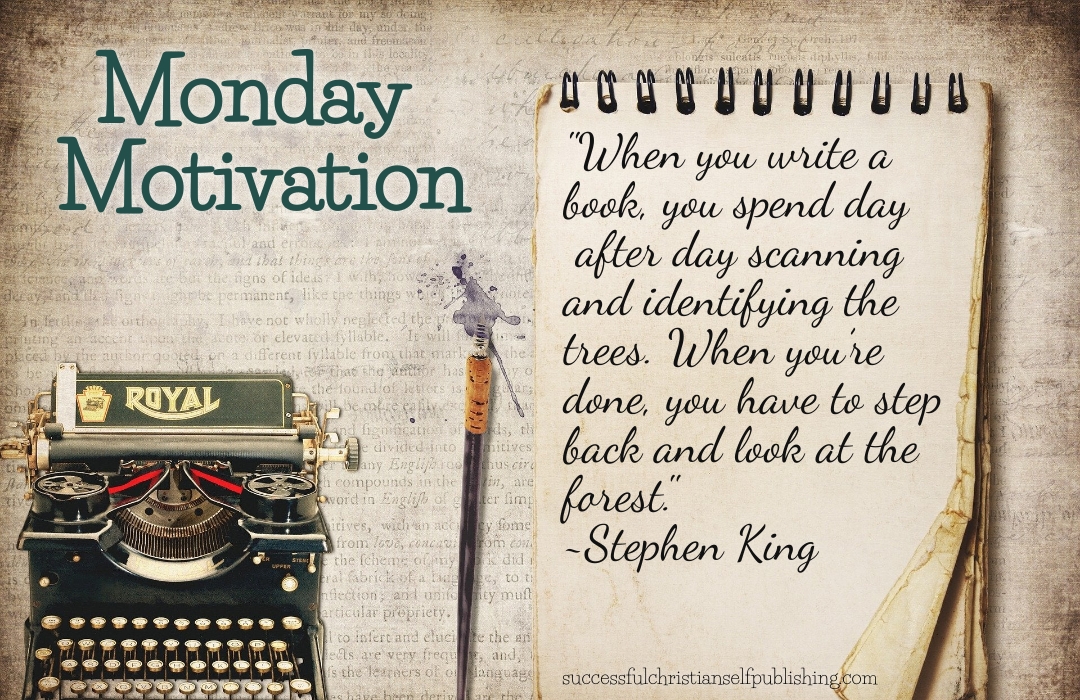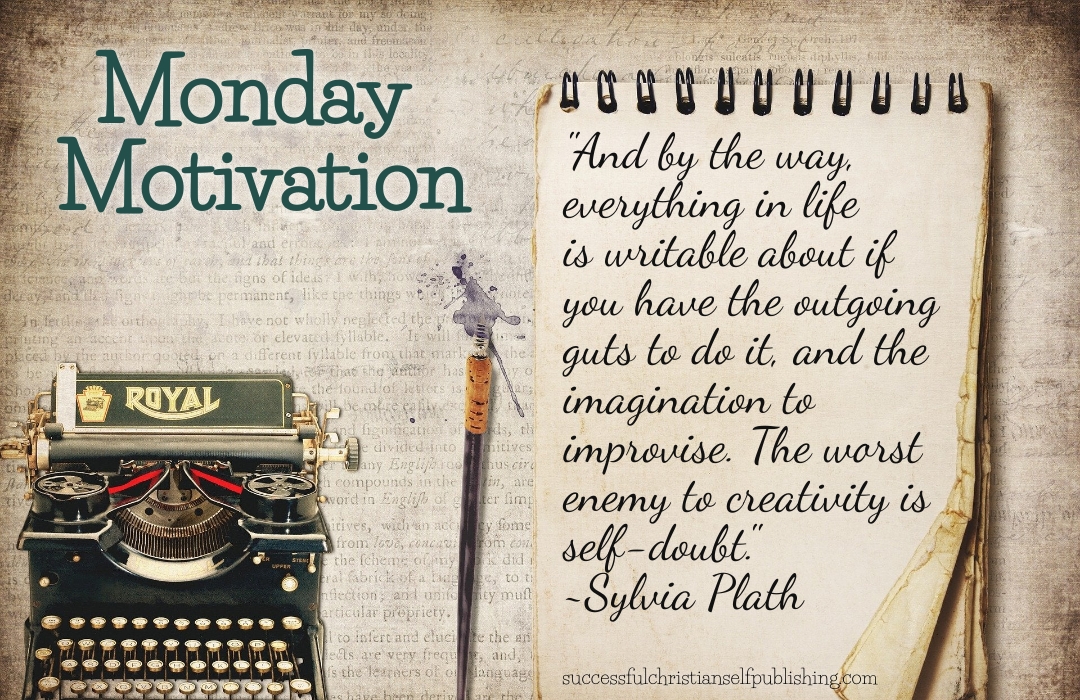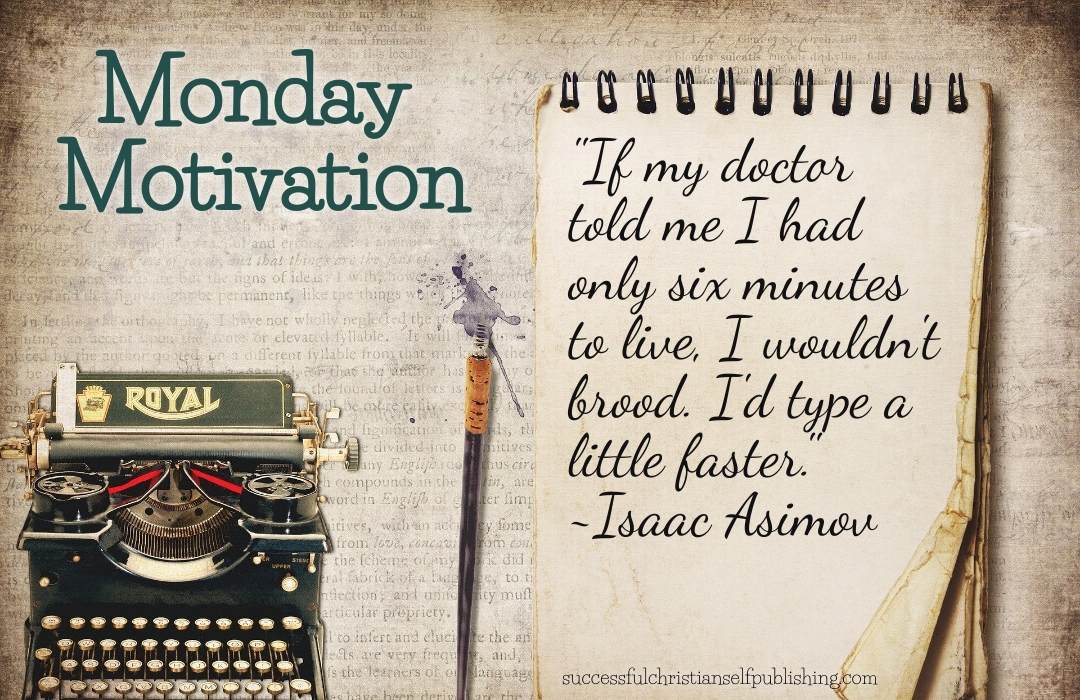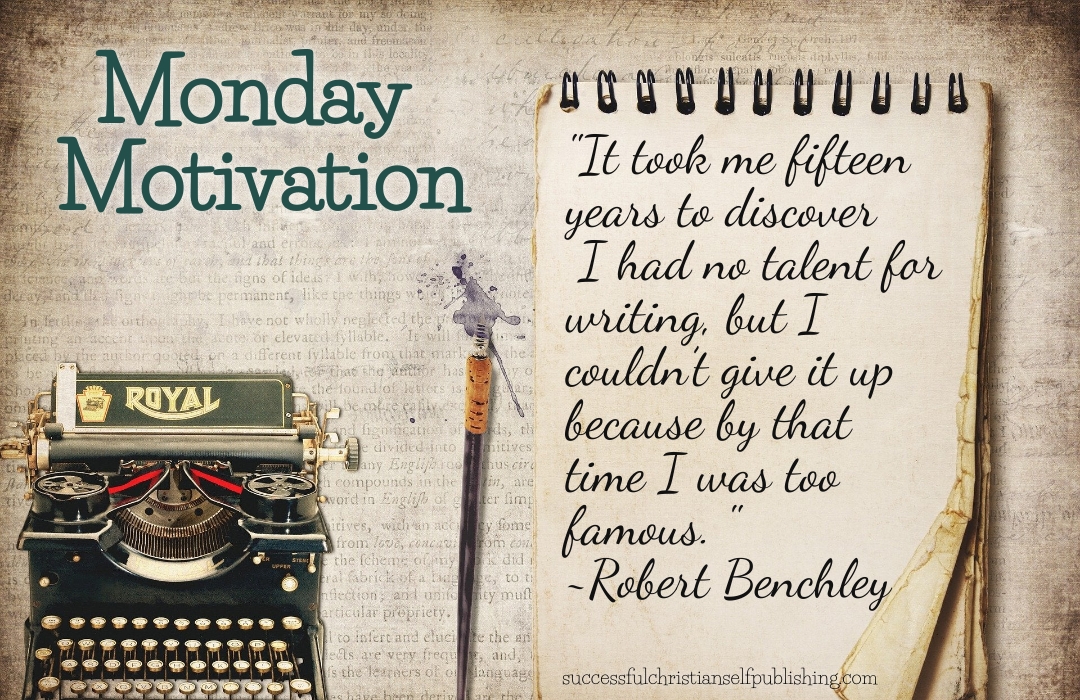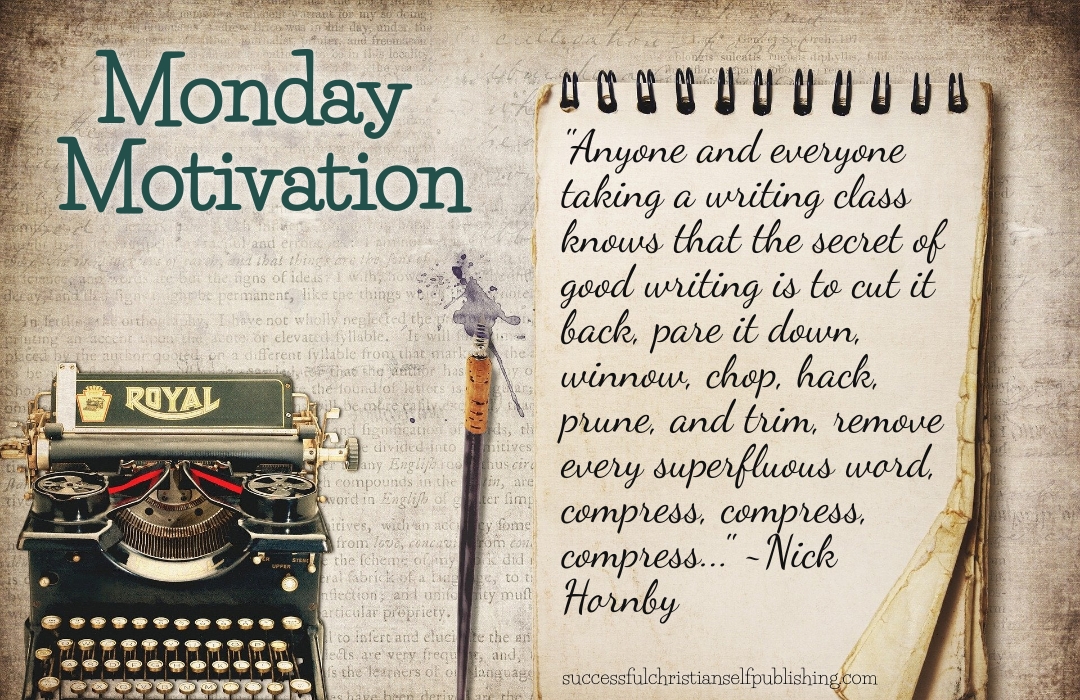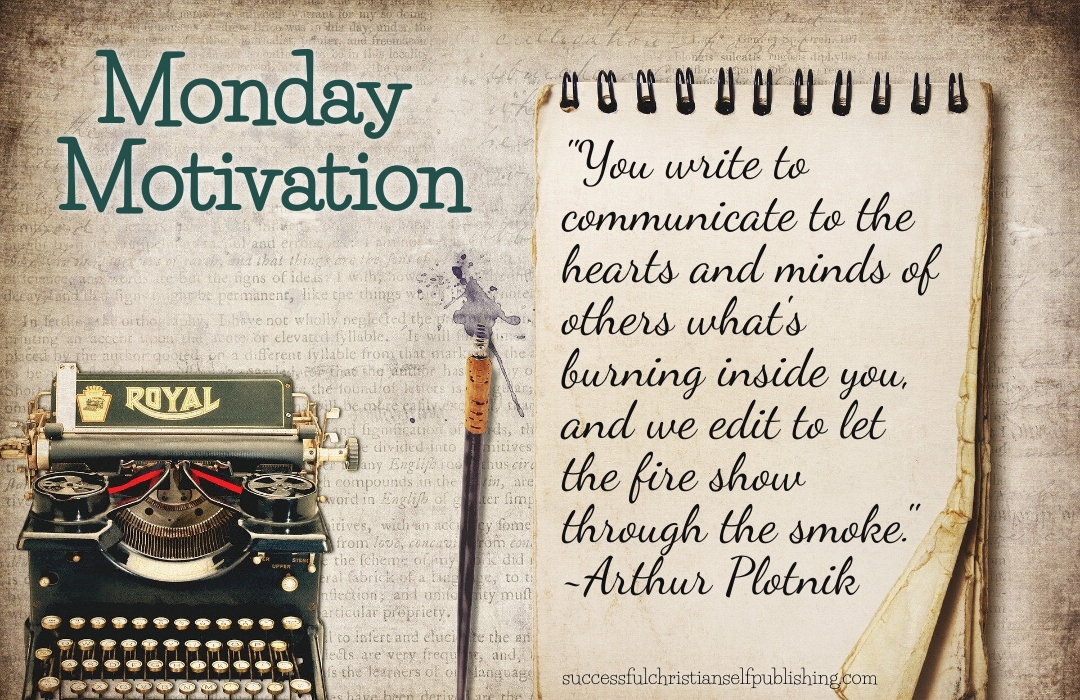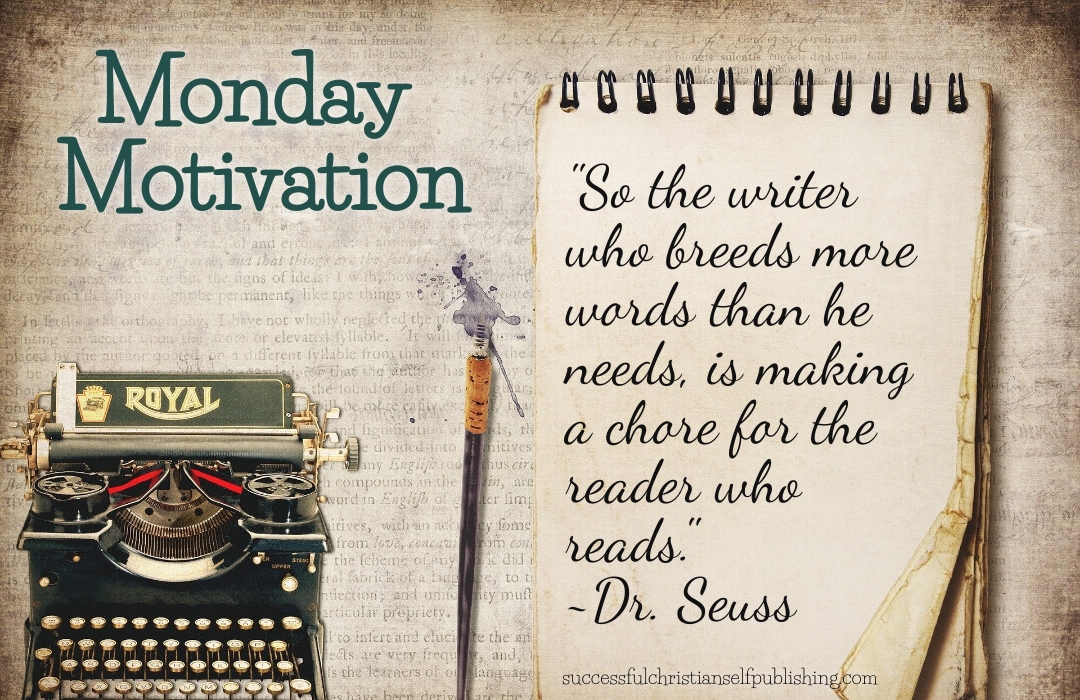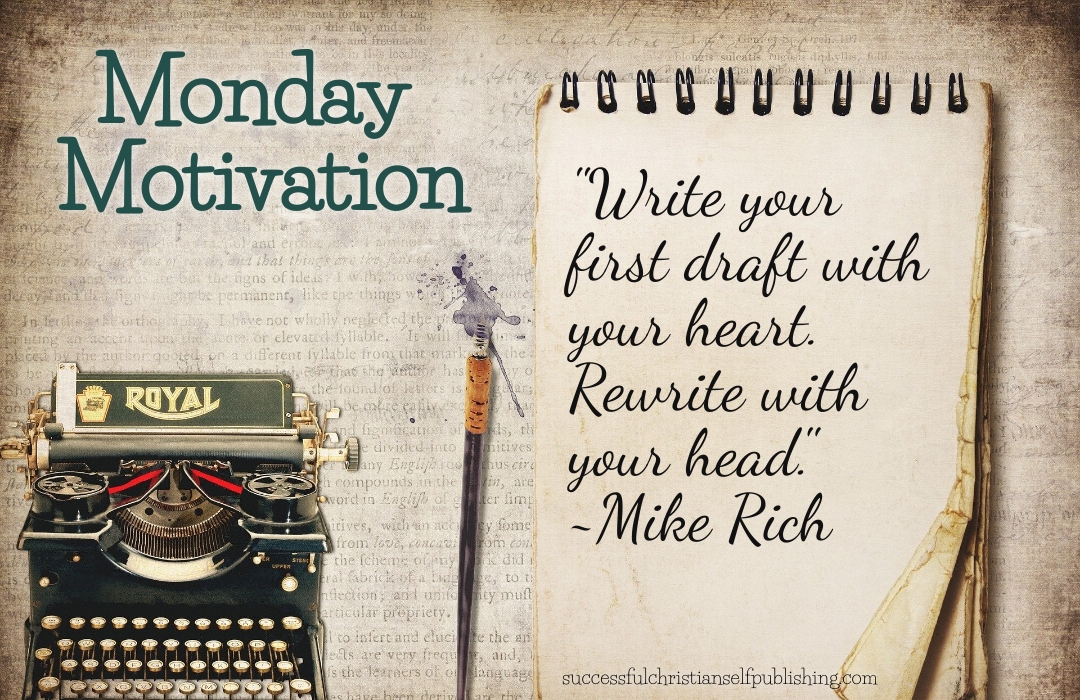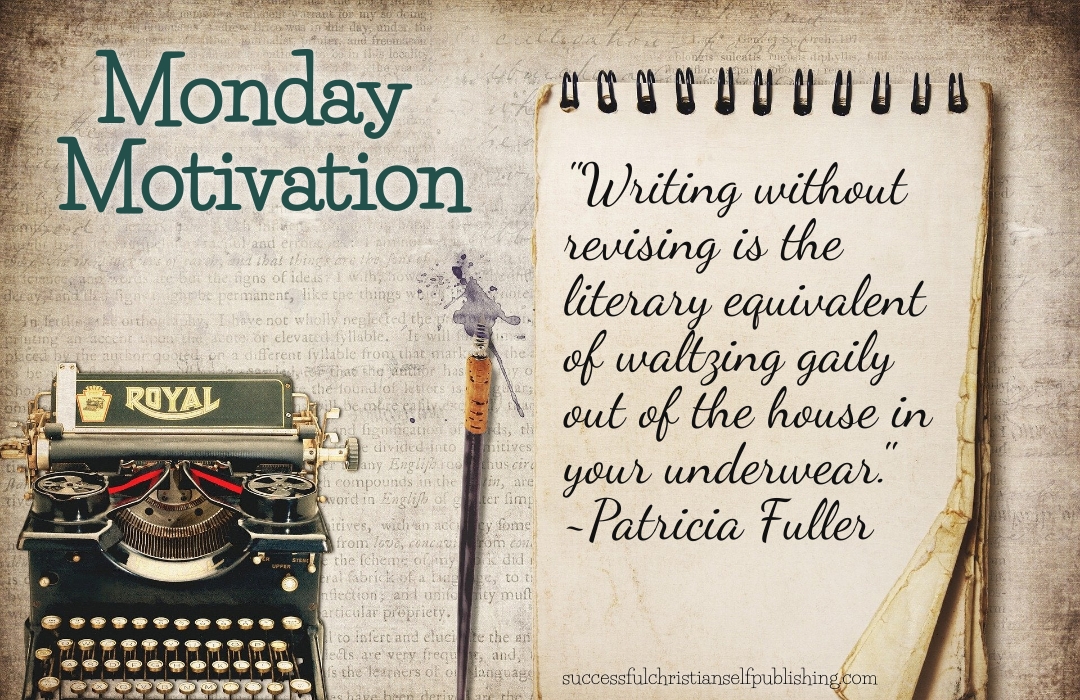“Believe in yourself! Have faith in your abilities! Without a humble but reasonable confidence in your own powers, you cannot be successful or happy.” ~Norman Vincent Peale #writingencouragement #mondaymotivation
Author: Hallee Bridgeman
“When you write a book, you spend day after day scanning and identifying the trees. When you’re done, you have to step back and look at the forest.” ~Stephen King #writingencouragement #mondaymotivation
“And by the way, everything in life is writable about if you have the outgoing guts to do it, and the imagination to improvise. The worst enemy to creativity is self-doubt.” ~Sylvia Plath #writerencouragement #mondaymotivation
“If my doctor told me I had only six minutes to live, I wouldn’t brood. I’d type a little faster.” ~Isaac Asimov #writerencouragement #mondaymotivation
“It took me fifteen years to discover I had no talent for writing, but I couldn’t give it up because by that time I was too famous. ” ~Robert Benchley #mondaymotivation #writerencouragement
“Anyone and everyone taking a writing class knows that the secret of good writing is to cut it back, pare it down, winnow, chop, hack, prune, and trim, remove every superfluous word, compress, compress, compress…” ~Nick Hornby #writerencouragement #mondaymotivation
“You write to communicate to the hearts and minds of others what’s burning inside you, and we edit to let the fire show through the smoke.” ~Arthur Plotnik #mondaymotivation #writerencouragement
“So the writer who breeds more words than he needs, is making a chore for the reader who reads.” ~Dr. Seuss #mondaymotivation #writerencouragement
“Write your first draft with your heart. Rewrite with your head.” ~Mike Rich #writerencouragement #mondaymotivation
“Writing without revising is the literary equivalent of waltzing gaily out of the house in your underwear.” ~Patricia Fuller #mondaymotivation #writerencouragement
